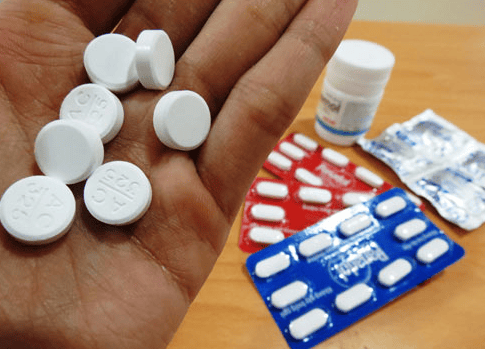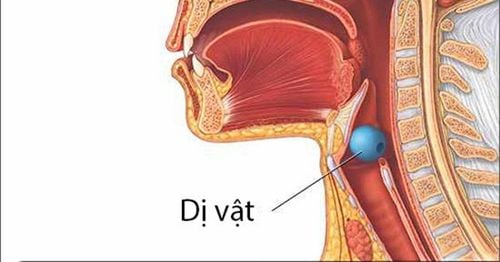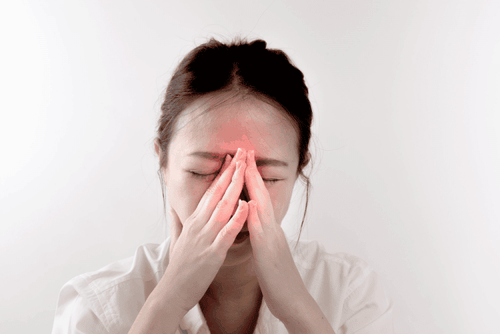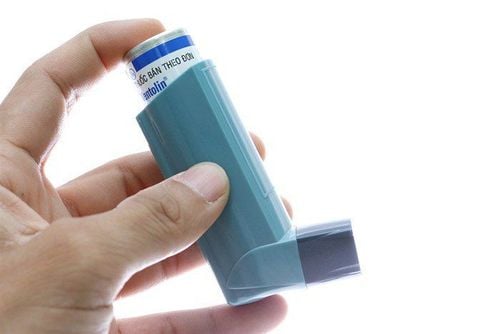This is an automatically translated article.
Patients with sinusitis should not eat and what should eat is a question many people ask because in addition to drug treatment, diet also plays an important role in the progression of the disease. The following article will provide readers with some information related to the question of what to do with sinusitis and what to abstain from sinusitis.
1. What is sinusitis?
Sinusitis is a condition in which the sinuses become inflamed or swollen with the epithelial lining inside. Normally the sinuses are hollow cavities and contain a certain amount of moisture, however, when the epithelial linings become inflamed and swollen, it will lead to congestion, the production of bacteria and the production of pus. These pus discharges are thick and mucoid, they create pressure on the sinuses, making the patient often suffer from pain in those areas related to the sinuses such as headache, eye pain, jaw pain.
Food digested by the body every day also has a certain impact on sinus health and can relieve or worsen sinusitis. Therefore, people with sinusitis need to learn carefully about some foods that have an impact on their health.
2. What should people with sinusitis not eat?
2.1. Foods that lead to allergies Sinusitis patients need to be especially careful when eating foods that cause allergies, including seafood such as shrimp, crab, squid or meats such as beef, chicken, etc. Duck meat,... The reason is that sinusitis patients often have a more sensitive body than the average person, so even though they may have eaten before they got it, they still have no problem. Therefore, it is necessary to monitor yourself about the foods that your body takes in and take careful notes if an allergic reaction occurs.
If a patient with sinusitis has food allergies, the lining of the nasal passages will become inflamed and swollen, accompanied by an uncomfortable stinging sensation or even various complications. Therefore, when there is a history of allergy to any ingredient, it is best to stay away from them.
2.2. Hot spicy foods Almost all kinds of hot spicy foods are not only bad for sinusitis but also not good for health. They will tend to irritate the stomach, causing gastric juices to back up into the throat and lead to acid in the gastric juices to damage the lining of the throat. In addition, purulent fluid is also secreted massively and deposited in the sinus cavities. Meanwhile, the lining of the nasal passages can simultaneously become severely swollen and inflamed, leading to infection and discomfort for the patient. Therefore, to have the most comfortable body, it is best to avoid hot spicy foods.
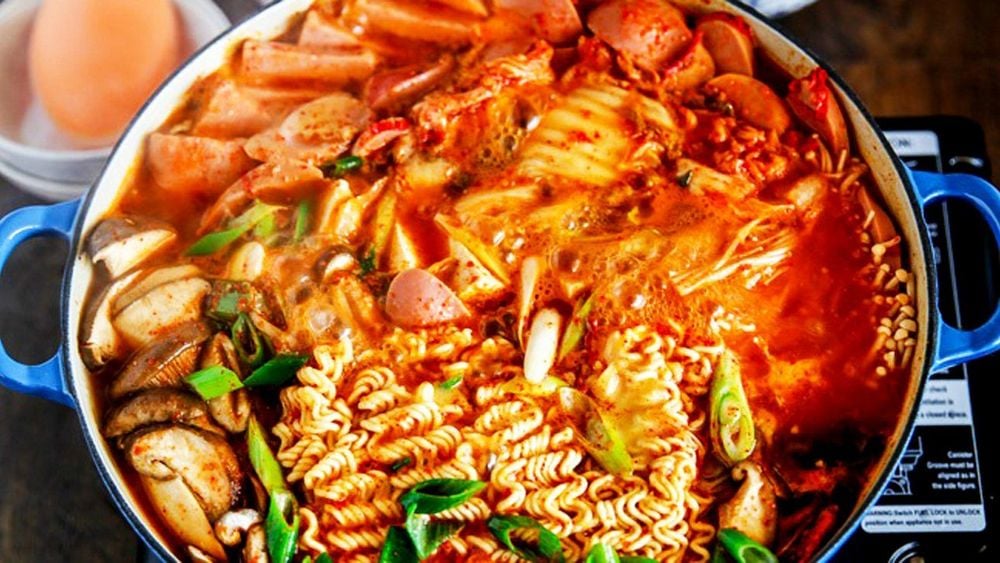
Người bị viêm xoang nên kiêng gì? Câu trả lời là những thực phẩm cay nóng
2.3. Alcoholic beverages and stimulants Some drinks should be limited, including alcoholic beverages such as beer, wine, carbonated drinks, coffee,...
Cause they will cause irritation throat area and cause swelling in the nose, burning, making the disease more serious. Meanwhile, the nasal part of the sinuses is also stimulated and secretes fluid, causing sinus stagnation.
Therefore, when using drinks such as alcohol, it also causes fatigue, reduces resistance and even makes the healing process of the sinus mucosa last longer.
2.5. Smoothies, fruit juices These are drinks that contain many nutrients but will have a few disadvantages for people with sinusitis. They can cause more fluid to accumulate in the sinuses and make the disease worse.
3. What should people with sinusitis do?
When suffering from sinusitis, the addition of nutrients in a balanced and reasonable way will help improve the condition quickly. At the same time, it will help reduce uncomfortable symptoms and prevent recurrence of sinusitis.
3.1. Essential nutrients needed for people with sinusitis Zinc Zinc helps repel inflammation in the sinuses, nose and throat, so it will be able to reduce pain and inflammation in the sinus cavities if the body is provided with enough required amount of zinc.
Foods that contain a lot of zinc include seafood, shrimp, crab, pork... However, these are potentially allergenic foods, so patients need to pay attention to the body's allergenic factors. to decide whether to eat or not.
Natural antibacterial ingredients In addition to drug treatment, the use of antibacterial ingredients found in nature can also help heal wounds and limit the side effects caused by drugs. Spices that contain such ingredients as onions, garlic, ginger, and honey. However, it should be used in moderation to avoid side effects.
Omega-3 Omega-3 is an important ingredient with the effect of reducing the most painful pain in people with diseases related to the respiratory tract and sinusitis. Foods rich in Omega-3 include salmon, sardines, sardines, ...
Vitamin C Vitamin C works to repel inflammatory reactions in the nasal mucosa, soothes the nose and thins mucus. In addition, vitamin C also helps increase resistance to fight many different diseases. Foods that help supplement vitamin C include green vegetables and fruits such as oranges, apples, kiwis, ...

Bị viêm xoang nên làm gì? Bạn nên bổ sung thực phẩm giàu Vitamin C
3.2. What to eat when you have sinusitis? Ginger, Turmeric Ginger contains the active ingredient Gingerol, which has anti-inflammatory effects thanks to its strong biologically active antioxidant capacity. This compound acts as a natural antihistamine with anti-inflammatory effects. In addition, Gingerol also inhibits the RSV virus that causes respiratory infections.
In addition to being used to make delicious condiments in daily meals, ginger also works as a nasal spray to help dispel symptoms of discomfort in the sinus area. Especially, the ingredients in ginger tea combine with lemon and honey to create delicious and nutritious products. Patients can use ginger tea daily to relieve headaches and pain caused by sinuses. Turmeric is also a very good food with the same effect as ginger thanks to its curcumin component with anti-inflammatory, antibacterial, and antioxidant effects. Turmeric can be used as a spice or taken with honey daily. It should be noted that it is not for use by pregnant women and nursing mothers.
Garlic Garlic contains nutrients alliin, after entering the body, it will convert into allicin with effects such as antibacterial, antiviral, antifungal, against agents that cause sinusitis, and clears inflamed sinuses. In addition, garlic also contains components vitamin C, B6, magnesium, scordini ... in garlic to help strengthen the immune system. Garlic can be used as a condiment or eaten raw, soaked in alcohol, or inhaled daily.
Garlic can be used in many different forms, such as seasoning dishes, eaten raw, steamed with garlic, soaked in wine,... Radishes
White and red radishes contain a A large amount of vitamin C has the effect of strengthening resistance, weakening cells that damage the lining of the sinuses, treating colds and flu.
In traditional medicine, radish is a remedy used to combat symptoms of shortness of breath and soothe headaches and nasal pain caused by sinusitis.
Salmon Salmon is known to be a rich source of Omega-3 nutrients. Not only has the effect of improving eyesight, developing the brain but also helping to reduce pain symptoms caused by sinusitis. Therefore, salmon is considered the top food to support people with sinusitis.
3. Caring for patients with sinusitis
Sinusitis, if not detected in time and treated properly, can cause many dangerous complications and affect the patient's health. Therefore, taking care in a scientific way is extremely necessary:
Follow a reasonable diet People with sinusitis should follow the nutritional guidelines mentioned above to relieve symptoms and have a healthy life.
Care more about the living environment Clean the house and trees around the house to have an airy space and as little dust and pollution as possible.
Wear a mask when leaving the house to prevent dust When going out or going to places with a lot of dust such as construction sites, you should wear a mask to prevent dust from entering your body through your nose.
Daily hygiene of the nose, mouth and throat You should brush your teeth twice a day in the morning and at night for a period of 2 minutes. Gargle and rinse your nose with physiological saline solution.
Keeping body warm in cold winter Cold weather is the time when people with sinusitis need special attention because if they are subjective, they can make the condition worse. Should keep the head, neck, limbs and nose warm so that sinus disease does not make you uncomfortable.

Mắc viêm xoang nên làm gì? Bạn nên giữ ấm cơ thể vào mùa đông giá lạnh
Drink enough water every day you need to add about 2 liters of water for your body. With enough water, the mucus in the nose and throat will thin out, making the nasal passages open and easier to breathe.
Through the above article, we hope to provide readers with an overview of the do's and don'ts when suffering from sinusitis. When you have any symptoms of the disease, you need to immediately go to a medical facility to see a specialist to discuss more.
Please dial HOTLINE for more information or register for an appointment HERE. Download MyVinmec app to make appointments faster and to manage your bookings easily.




